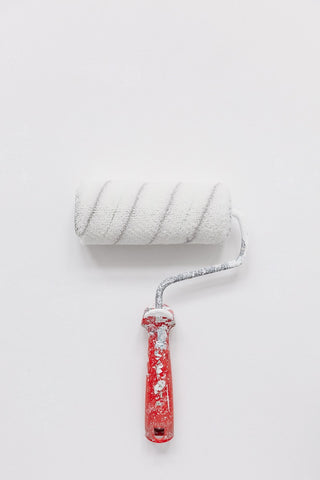Why you should beware of Kaolin Clay in Skincare (and what to use instead)

Let’s get straight to the point here. Would you put something on your face, that’s also used as a pesticide?! Kaolin is a type of clay that’s often promoted in the skincare industry as a clay mask ingredient.
Made primarily from the mineral kaolinite, it is also sometimes known as white clay or China clay. But what you might not know is that kaolin clay is used in many industries besides skincare: from paint, to toothpaste, to farming and agriculture, and the production of paper.
Below, we expand on two surprising and scary uses for kaolin clay.
Scary Fact #1: Kaolin is used in the Agriculture Industry
In farming and agriculture, spray dried kaolin grades are used as a carrier for pesticides. Kaolin increases the surface area of particles, allowing for better absorption of the active pesticide ingredient.
Similarly, kaolin is also used as a coating for seeds. The increased seed size improves handling and plantability, protecting them against adverse field conditions.
In urea fertilizer, the addition of Kaolin in the final steps of the manufacturing process can help retain the granular nature of the fertilizer and prevent caking.
Home gardeners have also turned to kaolin clay as a deterrent for insect pests, when mixed with water and used as a spray. As a tip for gardeners using kaolin clay: “You should use a dust mask and goggles to protect your eyes, mouth, and nose when you handle and mix it. The powder is non-toxic, and will not seriously harm you, but inhaling it and/or getting it in your eyes would be unpleasant.”
If gardeners using kaolin clay are being advised to use a dust mask and googles to protect their eyes, mouth, and nose when mixing kaolin, why would anyone voluntarily put this on their face as a skincare treatment?
Scary Fact #2: Kaolin in the Paint Industry
 Photo by Yoann Siloine on Unsplash
Photo by Yoann Siloine on Unsplash
In the paint industry, kaolin increases the durability of coatings, providing painted surfaces with more resistance to stains and scrubs. Kaolin can also help increase paint pigment opacity, and are used extensively in high-performance settings and in specialty coatings where durability is key, including traffic paint, textured paint, baking enamels and coil coatings.
Is this still an ingredient you want to put on your face?
Scary Fact #3: Kaolin in the Construction Industry
Going through a chemical reaction called calcination, Kaolin is also commonly adapted for use in the construction industry. When mixed with cement, it provides added strength and durability for concrete, reducing permeability and cracking.
With so many harsh industrial uses for kaolin clay, certainly this can’t be a gentle solution to treat your skincare concerns?
What about Bentonite clay?
Kaolin is scary as a skincare product, but its alternatives have their own challenges too. Bentonite Clay (also known as Aztec Clay), for example, is often promoted as an acne treatment.
The highly absorbent mineral properties of Bentonite Clay help absorb acne-causing oils, but because it can hold over 300% of its mass in water, not only will bentonite clay absorb oil, it’ll also suck your skin dry. Dehydrated skin can lead to an overproduction of sebum, which then leads to acne, and the cycle begins again.
What clay should I use for skincare instead?
If you’re already familiar with NENA Skincare, you’ll probably already know our answer: Glacial Oceanic Clay.
Harvested from the waters of Northern BC, mineral-rich Glacial Oceanic Clay helps naturally exfoliate the skin, remove contaminants and toxins, and increase collagen production. Especially if you have concerns with acne, oily skin, blemishes, redness of the skin, or enlarged pores, Glacial Clay is naturally effective in treating these concerns.
Unlike kaolin, glacial clay is only used in the skincare industry. Unlike bentonite, it won’t dry out your skin, on the contrary - it maintains your skin’s moisture levels.
Other skincare benefits of glacial clay include:
- Reduces on average 95% excess oils from skin surface
- Tightens pores after one use
- Anti-aging benefits - increases collagen production of the skin by 70%
- Anti-inflammatory properties.
- Hypoallergenic and non-irritating.


